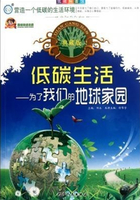IV. That we may understand what the Christian Faith is, we must define Faith in generall, and distinguish it from those other acts of the minde wherewith commonly it is confounded. The object of Faith universally taken, namely for that which is beleev'd, is evermore a proposition, (that is to say a speech affirmative, or negative) which we grant to be true. But because Propositions are granted for divers causes, it falls out, that these kind of concessions are diversly called: But we grant Propositions sometimes which notwithstanding we receive not into our mindes; and this either for a time, to wit, so long, till by consideration of the consequencies, we have well examin'd the truth of them, which we call supposing; or also simply, as through feare of the Lawes, which is to professe, or confesse by outward tokens; or for a voluntary compliance sake, which men use out of civility to those whom they respect, and for love of Peace to others, which is absolute yeelding. Now the Propositions which we receive for truth, we alwaies grant for some reasons of our owne, and these are deriv'd either from the Proposition it selfe, or from the Person propounding. They are deriv'd from the Proposition it selfe, by calling to minde what things those words which make up the Proposition doe by common consent usually signifie: if so, then the assent which we give is called knowledge, or Science. But if we cannot remember what is certainly understood by those words, but sometimes one thing, sometimes another seeme to be apprehended by us, then we are said to thinke. For example, if it be propounded that two and three makes five; and by calling to minde the order of those numerall words, that it is so appointed by the common consent of them who are of the same language with us, (as it were by a certaine contract necessary for humane society) that five shall be the name of so many unities as are contain'd in two and three taken together, a man assents, that this is therefore true because two and three together, are the same with five. This assent shall be called knowledge, and to know this truth is nothing else but to acknowledge that it is made by our selves; For by whose will and rules of speaking the number... is called two,... is called three, &c... is called five, by their will also it comes to passe, that this Proposition is true, Two and three taken together makes five. In like manner if we remember what it is that is called theft, and what injury, we shall understand by the words themselves, whether it be true that theft is an injury, or not. Truth is the same with a true Proposition; but the Proposition is true in which the word consequent, which by Logicians is called the praedicate, embraceth the word antecedent in its amplitude, which they call the Subject; and to know truth is the same thing as to remember that it was made by our selves in the common use of words. Neither was it rashly, or unadvisedly said by Plato of old, that knowledge was memory. But it happens sometimes that words although they have a certaine, and defin'd signification by constitution, yet by vulgar use either to adorne, or deceive, they are so wrested from their owne significations, that to remember the conceptions for which they were first impos'd on things is very hard, and not to be maistered but by a sharpe judgement, and very great diligence. It happens too, that there are many words which have no proper, determin'd, and every where the same signification; and are understood not by their owne, but by vertue of other signes us'd together with them. Thirdly, there are some words of things unconceivable; of those things therefore whereof they are the words, there is no conception; and therefore in vaine doe we seeke for the truth of those Propositions, which they make out of the words themselves. In these cases, while by considering the definitions of words we search out the truth of some proposition, according to the hope we have of finding it, we thinke it sometimes true, and sometimes false; either of which apart is called thinking, and also beleeving; both together, doubting. But when our reasons for which we assent to some Proposition, derive not from the Proposition it selfe, but from the Person Propounding, whom we esteeme so learned that he is not deceiv'd, and we see no reason why he should deceive us; our assent, because it growes not from any confidence of our owne, but from another mans knowledge, is called Faith: And by the confidence of whom, we doe beleeve, we are said to trust them, or to trust in them. By what hath been said, the difference appeares first betweene Faith, and Profession; for that is alwaies joyn'd with inward assent, this not alwayes; That is an inward perswasion of the minde, this an outward obedience. Next, betweene Faith, and Opinion; for this depends on our owne reason, that on the good esteeme we have of another. Lastly betweene Faith and Knowledge; for this deliberately takes a proposition broken, and chewed; that swallowes downe whole and entire. The explication of words, whereby the matter enquir'd after is propounded, is conducible to knowledge; nay, the onely way to know, is by definition. But this is prejudiciall to Faith; for those things which exceede humane capacity, and are propounded to be beleev'd, are never more evident by explication, but on the contrary more obscure, and harder to be credited. And the same thing befalls a man who endeavours to demonstrate the mysteries of Faith by naturall reason, which happens to a sick man, who will needs chew before he will swallow his wholsome, but bitter Pills; whence it comes to passe, that he presently brings them up againe, which perhaps would otherwise, if he had taken them well downe, have prov'd his remedy.
同类推荐
热门推荐
低碳生活:为了我们的地球家园
旨在引导新时代的青少年一起行动起来,为了我们共同的家园,用自己的实际行动把生活耗用能量降到最低,从而减少二氧化碳的排放,实现绿色低碳生活。低碳生活是一种态度,也是一种责任,更是一种爱,让我们的爱更宽广,更包容,更细致吧!明代哲学史(修订版)
本书是国内外第一部系统阐述明代哲学的专著,内容包括明代初年的朱子学,阳明心学的先驱,王阳明的良知之学,阳明各派弟子主要是浙中、江右、泰州对阳明学的发展,明代中后期的朱子学,明末东林、蕺山对朱子与阳明的融合,黄宗羲、方以智、王夫之等明清之际思想家对明朝学术的反省与总结,以及明代佛教、道教与儒学的会通,天主教初传时期与本土文化的碰撞与吸收等,较为清晰地勾勒出了明代哲学的发展脉络。在论述中,注意各家的独特性及其思想深度,各思想家在整个明代哲学发展中所起的作用及其相互影响。对明代哲学的独特问题如良知的有无、动静、中和及本体与功夫、先天与后天等有深入阐发。感谢扑克,感谢和我一起玩扑克的人
过了元旦又到了新的一年,工程的进展果然变得顺利起来。厂门口树起了一块极为扎眼的倒计时牌,距一号机组并网发电还有200天。二号机组按照计划也将在年底投产。这两台机组的装机容量均为30万千瓦,总装机容量60万千瓦,燃用的是山西长治矿出的贫煤。这座电站对缓解华东电网尤其是本市民用电的缺乏将起到非常重要的作用。在揭牌仪式上,厂长当然要当仁不让地发表一番讲话。















